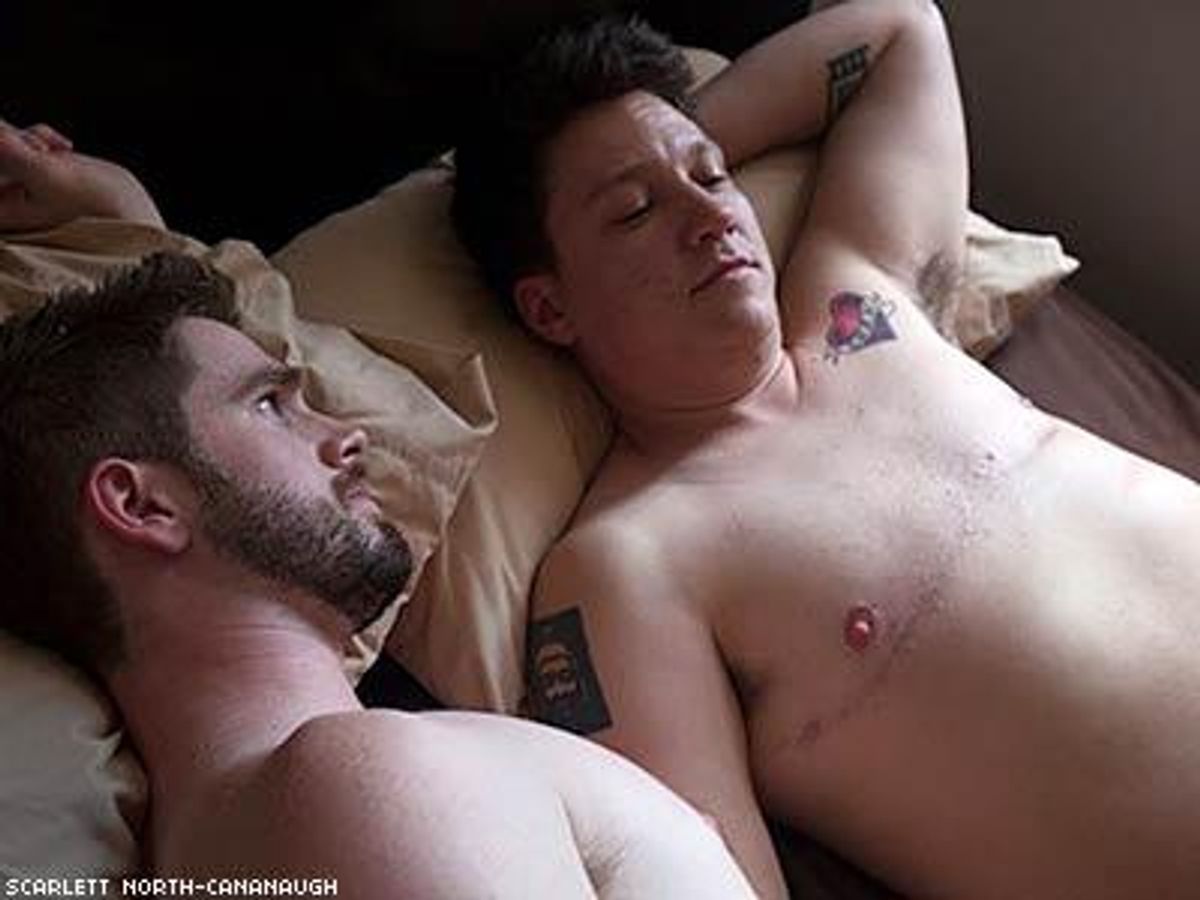While high-profile television shows like Orange Is the New Black and Transparent have received attention and acclaim for featuring transgender characters and actors, trans artists have also been steadily producing trans-focused independent media intended to meet the same audience's desire for authentic storytelling.
This month, trans writer and director Emmett Lundberg's Web series Brothers wrapped production on its eight-episode first season (and released a tantalizing teaser). Brothers follows four urban, millennial trans male friends as they navigate love, heartache, and gender transition. Written, in part, from Lundberg's own experiences as a transgender man, Brotherscenters on aspects of trans male experiences in ways yet unseen in more mainstream television shows.
"There's something incredibly fulfilling about creating work that didn't exist in the world prior to your vision," Lundberg explained to The Advocate, pointing out that while trans men have often been featured in documentaries, they can reach a new level of visibility through screening narrative stories. The Advocate met up with Lundberg to learn more.
The Advocate: Congrats on wrapping up the first season of Brothers! Can you tell us a bit about the process of filming the show?
Emmett Lundberg: We shot the entire first season, which consists of seven episodes in addition to the first one already released, and each ranging from five to 10 minutes, in 10 days, over the four weekends in September. Since we weren't able to raise enough money to pay people, we couldn't ask them to take chunks of time from work. Everyone working on this show has done it because they want to be involved, not because they're getting paid, and I think that's a very important distinction to make. That was also a very hard thing for me to ask people to do because I am a filmmaker. It's how I make my living and I know what it's like to be asked to work incredibly hard, to do a real job, for no money.
I don't think a lot of people outside of the industry understand the huge process that shooting anything entails. There's a lot of preparation that goes into it, especially if you are on such a tight schedule like we were. That being said, this was one of the smoother shoots I've been on. We were able to go into each location, know what we wanted and needed to get in terms of shots, audio, and performance, and just make it happen. We took a lot of time going over each day's work beforehand to ensure that when we got into the space, we could just bang it out.
Any surprises?
I haven't acted in years, and certainly not in this capacity [as the show's writer and director], so putting myself into the project was terrifying in more ways than one. I wondered if I could hold the weight of it, if I could live up to that the project needed to be successful. I'm a shy person in real life and I thought that would translate on-screen in a negative way. But I found that for me, there was a space to come alive on-screen and explore things that might have been harder to do in my own reality. I can honestly say I am surprised by my own ability to bring my experiences across on-screen.
All of my costars were amazing, and there's always a bit of surprise when you give something you've written to a very talented actor who can bring the words to life in a way you never thought possible. Each person brings their own experiences to the table and that comes through in their understanding and delivery of a character or scene. With that in mind, I actually wrote in a lot more material for several of the secondary characters because of what they brought to the role. I continued fleshing out many of these characters right up until we shot everything.
A lot of buzz surrounded the release of the pilot. What's been the ongoing response as you've been quiet, preparing the next seven episodes?
Aside from the general buzz [around] the pilot episode in June, we are continuing to get very positive responses from fellow trans men, who can finally see themselves in a realistic and positive way on-screen. That is why this project was created in the first place. I wanted to see myself in narrative stories and I knew I couldn't be the only one who felt that way. I'm so glad to have had the resources and the people to make Brothers a reality, because I believe it is very needed in media in general.
Similar conversations have surrounded Jill Soloway's Transparent, which was released during the time you were filming. Did the response to Soloway's show influence Brothers in any way?
I think the release of Transparent is an incredible thing for Brothers. I think that any visibility pushes the movement forward, and especially a show that was created with the involvement of trans people. It's great to see trans representation in narrative stories. That feels very important to me. Of course documentaries are incredibly important too, but I believe there is more room to play in narrative stories. Since it is something you are creating fully from scratch, it can move in any direction you want it to. And that is incredibly fun!
Step behind the scenes with these exclusive images from the first season of Brothers below.































































































